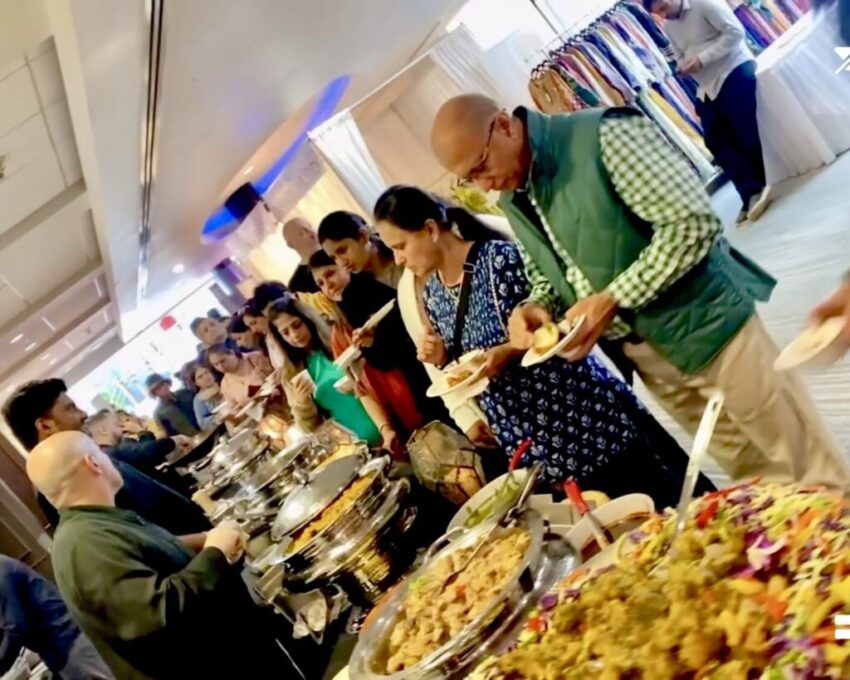
The question:
Is it true that eating a big meal can lead to a heart attack?
– – –
The science:
We all treat ourselves with delicious food every now and then – a Memorial Day barbecue, Super Bowl Sunday pizza, Thanksgiving turkey with all the fixings.
“Small amounts of indulgences in moderation are always okay,” said Ameya Kulkarni, a cardiologist at Kaiser Permanente in Virginia.
Overdoing it, however, may increase the risk for certain health events such as a possible heart attack, which is more of an issue for people with certain chronic health conditions.
“If you’re young and healthy and you have a single big meal, it’s unlikely to induce a heart attack, but in the right population, it certainly could increase risk,” Kulkarni said.
Heart disease is the leading cause of death in the United States, and about every 40 seconds, someone has a heart attack. That’s more than 800,000 people per year, according to data from the Centers for Disease Control and Prevention.
In 2000, a study abstract presented at an American Heart Association scientific sessions revealed that an “unusually heavy meal” may increase the risk of a heart attack by about four times in the two hours after eating – which the authors called the “hazard period” – particularly in those with preexisting heart disease. The participants self-described the meals as “heavy,” the researchers noted. The abstract was not published in a peer-reviewed journal.
Similarly, an analysis of 17 studies in 2005 suggested that heavy physical exertion, eating and emotional stress were among some of the more commonly reported triggers leading up to a heart attack. Men were more likely than women to report exertion and eating, while women were more likely to report emotional stress.
It makes sense. Eating a large meal high in saturated fats, calories and processed carbohydrates is similar to extreme physical exertion for your heart. To digest that big bolus of food in your stomach, your body redirects blood flow to your digestive system. Blood vessels also constrict, increasing heart rate and blood pressure, and limiting blood flow to the heart, said Steve Kopecky, a cardiologist and professor of medicine and cardiovascular diseases at Mayo Clinic.
That high blood pressure can rupture cholesterol plaques in the arteries, forming a clot. Even the high-fat meal itself – think butter-soaked potatoes, gravy and heavily marbled meats – can make the blood more likely to clot.
“These are things that combine together so that, a few hours later, you get a heart attack,” Kopecky said.
In theory, that is. There are factors that increase your risk of a heart attack, including certain medical conditions such as diabetes, high cholesterol, high blood pressure and obesity, as well as lifestyle habits such as a poor diet, lack of exercise or a history of smoking. In such cases, a large meal could trigger a heart attack in the same way that emotional stress or physical exertion such as shoveling snow can, said Kulkarni, who is also the president of the American Heart Association’s Greater Washington Region Board of Directors.
If you have these major common symptoms of a heart attack, seek urgent medical care:
–Chest pain or discomfort in the center or left side of the chest, particularly if it does not go away for several minutes or returns.
–Pain or discomfort in one or both arms, jaw, neck, back or above the belly button.
–Shortness of breath without physical exertion.
–Weakness, lightheadedness, dizziness or breaking into a cold sweat for no reason.
–Nausea or vomiting.
–Fast or irregular heartbeat.
– – –
What else you should know
–Enjoy an indulgent meal, but put healthy items on your plate, too. Ideally, about 50 percent of your plate should be filled with fruits and vegetables, 25 percent with protein and 25 percent with starch, Kulkarni said. So consider starting with a salad and then adding whole fresh foods such as turkey with a modest amount of stuffing, beans and sweet potatoes.
–Eat slowly. It takes up to 20 minutes after your stomach is full for your brain to receive the signal, meaning you can overeat when you eat fast. Take your time, and use the meal as a social event to catch up with family and friends.
–Limit alcohol. Drinking alcohol can stimulate your appetite and impede self-control, leading to overeating.
–Stop eating when you feel full. Once you’ve had enough, forgo that second helping.
–Go for a walk after dinner. Walking can help lower your triglycerides, a form of fat in the bloodstream, and regulate blood pressure, Kopecky said. It can also lower blood sugar.
– – –
The bottom line
Eating a large meal that is high in saturated fats, calories and processed carbohydrates can increase the risk of a heart attack for people who are predisposed because of certain underlying medical conditions. However, you can reduce your risk by indulging in moderation, adding healthy foods to your plate and skipping seconds.



